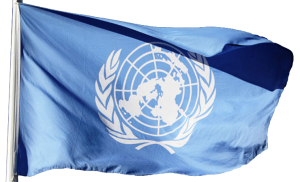 The United Nations Committee on Narcotic Drugs (UNCND) has delayed voting on cannabis and CBD recommendations in a move that has upset a number of delegates.
The United Nations Committee on Narcotic Drugs (UNCND) has delayed voting on cannabis and CBD recommendations in a move that has upset a number of delegates.
The vote was to have taken place at the 62nd session of the UNCND in Vienna on 18th-22nd March. Instead, a decision will be taken at that session on when the vote is to be held.
There is a choice between voting on the recommendations during the re-convened session – to be held in December but not yet formally scheduled – and moving the decision entirely to the 63rd session, due in 2020.
The decision to postpone the vote was taken because of a delay in receiving recommendations from the Expert Committee on Drug Dependence (ECDD). The committee was concerned that member states would not have enough time to prepare, given the complex domestic situations surrounding cannabis in some instances.
Delegates from Norway and Uruguay have both questioned why the vote was not taking place at the March meeting and expressed a preference for more immediate action.
“We still don’t have a clear explanation on why it takes so long to consider recommendations when these [members] took in the same meeting of the ECDD as the others,” said a Uruguayan representative. “We don’t want to block the consensus and we understand some [member states] need more time to consider. We can go along with a later consideration but it would be nice to know when. Why has this internal clearance taken so long?”
A spokesperson for the World Health Organization (WHO) said there were a number of complex issues to consider and despite meeting twice in the past year, while other meetings ran parallel, it was not possible for it to submit recommendations earlier.
Schedules and footnotes
Japan welcomed the delay and supported meeting the three-month minimum timeframe as it would allow time to develop a better understanding of the issues.
“This involves relaxation of regulations and we need to look into that matter and assess possible impact,” said the Japanese delegate. “[The chair of the UNCND intercessional committee] mentioned the three months time as necessary. As everybody here knows, that doesn’t allow us a lot of time to begin with.”
The delayed proposals include explicitly excluding CBD from the schedules to the 1961 Single Convention on Narcotic Drugs.
It is also proposed that a footnote is added to the convention’s schedules saying: “preparations containing predominantly cannabidiol and not more than 0.2% of delta-9-tetrahydrocannabinol [THC] are not under international control”.
Meanwhile, cannabis and cannabis resin should be removed from Schedule IV – a special schedule reserved for Schedule I substances (allowed only for medical and scientific purposes) of particular concern – but remain as Schedule I.
Gilles Forte, coordinator for policy, access and use at the Essential Medicines and Health Products Department of the WHO, said that the body was aware of growing issues around CBD and cannabis – such as the use of CBD in foods – but had not had discussions specifically on that topic.
Removing cannabis from Schedule IV has the potential to increase the level of research, he added.
What This Means: The delay in voting on the ECDD’s recommendations means a lack of clarity at many levels will continue. A number of regulators are guided by recommendations from multi-national organisations and are likely to postpone decisions until they hear opinions – leaving stakeholders in limbo. Next up, the UNCND will also hold an informational session on the issues surrounding cannabis on 6th March before the 62nd session starts on the 18th.
– Freddie Dawson CBD-Intel staff







